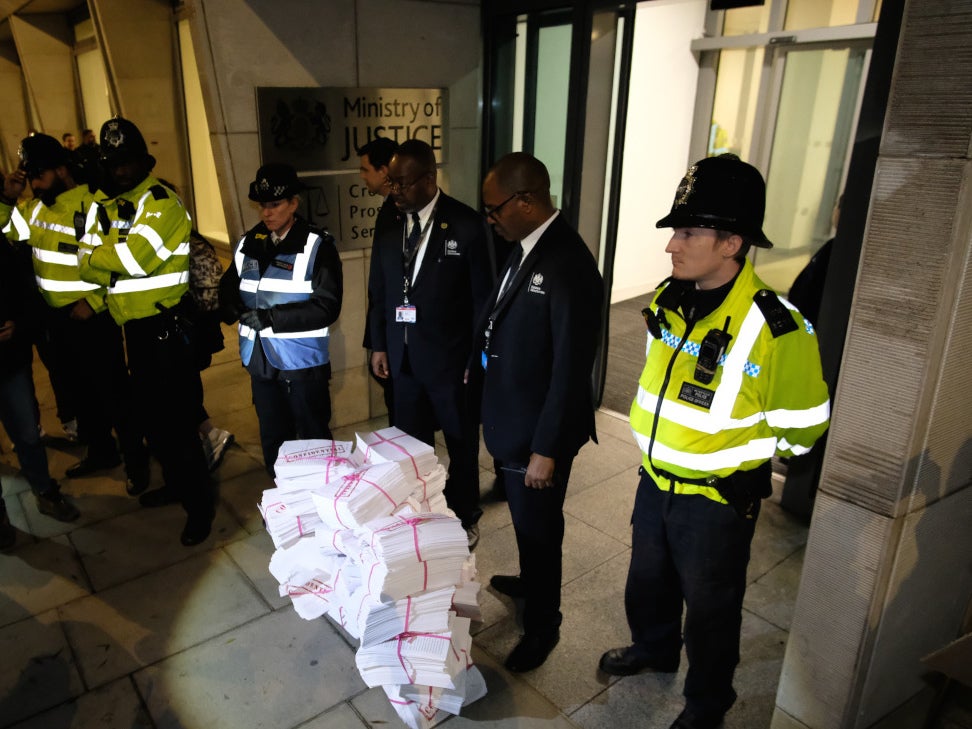How rape has become ‘decriminalised’
Analysis: New report shows victims are dropping out of investigations, but those who endure process face further issues, writes Lizzie Dearden

An in-depth review of rape investigations has revealed how victims are dropping cases because of trauma caused by police probes.
Complainants are forced to relive attacks time and again in gruelling police interviews, with one victim telling The Independent how she was questioned for six hours with no breaks or food.
Many are then asked for their mobile phones and face police and lawyers poring over their social media, photos and private messages for anything that may challenge their account or credibility.
Victims are commonly asked to sign “Stafford statements” that give investigators access to historic school, local authority and medical records – even where they have been attacked by strangers and have forensic evidence.
They may attend a specialist centre where they undergo invasive medical examinations and have samples taken.
Unlike the accused, victims are not entitled to legal representation or independent advice, and their ability to recall events may be affected by trauma or post-traumatic stress.
Perhaps unsurprisingly, the number of complainants dropping investigations is rising.
In 2018-19, 39 per cent of investigations into reported rapes were closed with the marker “evidential difficulties – victim does not support action”, up from 34 per cent the previous year.
While police emphasise the difficulty of continuing cases without their participation, the London victims commissioner argues that the attrition rate arises from investigators’ own failings.
“It’s not a choice – they are being pushed out of the process,” Claire Waxman says. “Everything works against them.”
The time taken to investigate rapes has increased to an average of four months, as police forces struggle to balance competing demands following the loss of more than 20,000 officers since 2010.
Fewer cases are being referred to the Crown Prosecution Service (CPS), which has been repeatedly forced to deny claims it “raised the bar” to charge after a scandal over cases that collapsed because of disclosure failings.
If a victim’s case is among the 1.5 per cent that proceed to a prosecution, they then face the prospect of being cross-examined at trial.
Juries are only allowed to convict offences that are proven “beyond reasonable doubt” – an exceptionally high bar for a crime that is most often committed in private, with no witnesses, involving two people known to each other and with different versions of the event.
Research suggests young men are likely to be acquitted and rape myths remain prevalent in the UK.
Only 32 per cent of 18- to 24-year-old men charged with rape were convicted in 2017-18, compared with 46 per cent of 25 to 59-year-olds in England and Wales.
The End Violence Against Women Coalition said the astonishingly low rates amount to “a decriminalisation of this extremely harmful crime”.
The government is already carrying out a review of how sexual violence cases are handled across the criminal justice system but while the problems are clear, the solutions will be harder to find.
Bookmark popover
Removed from bookmarks